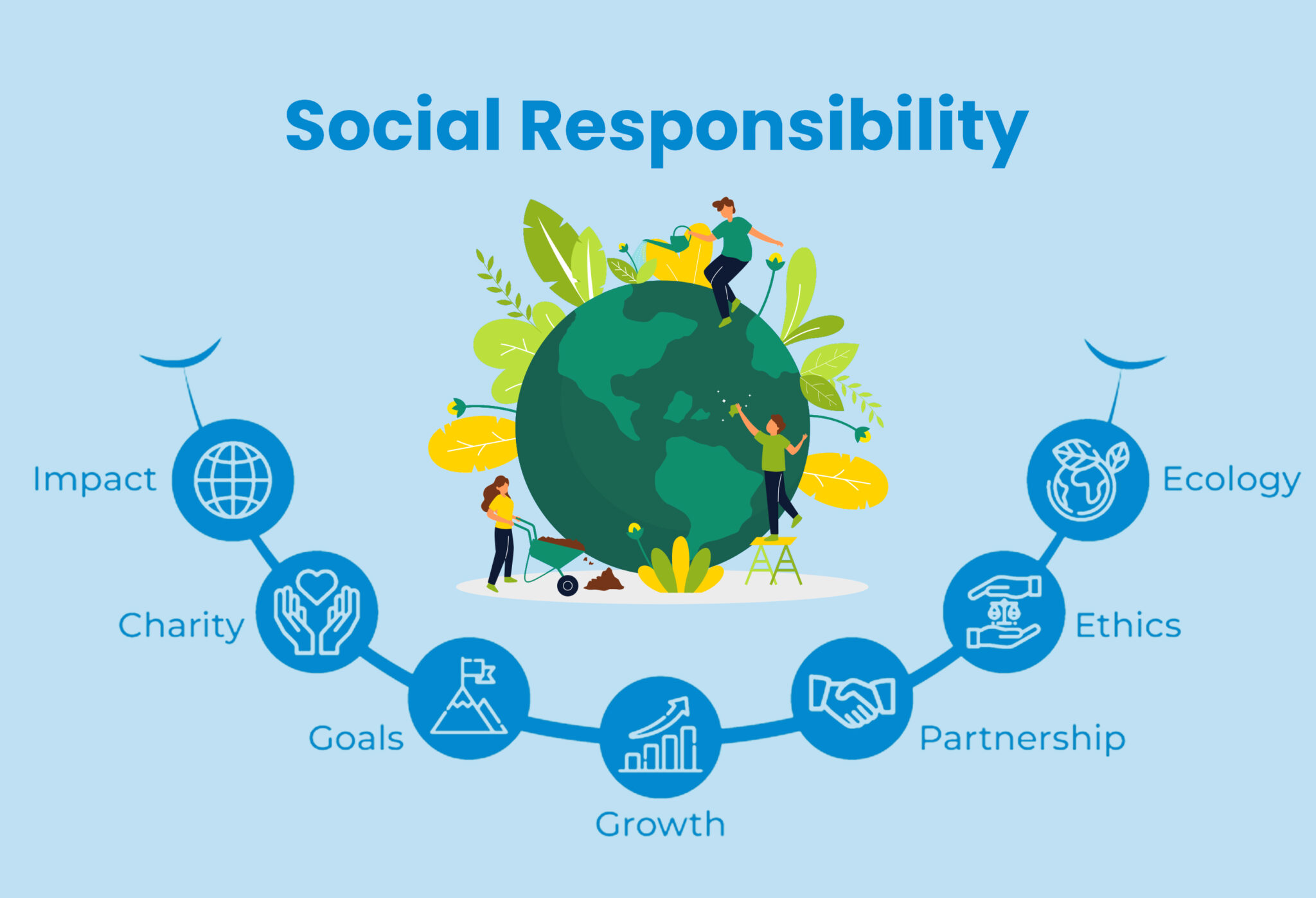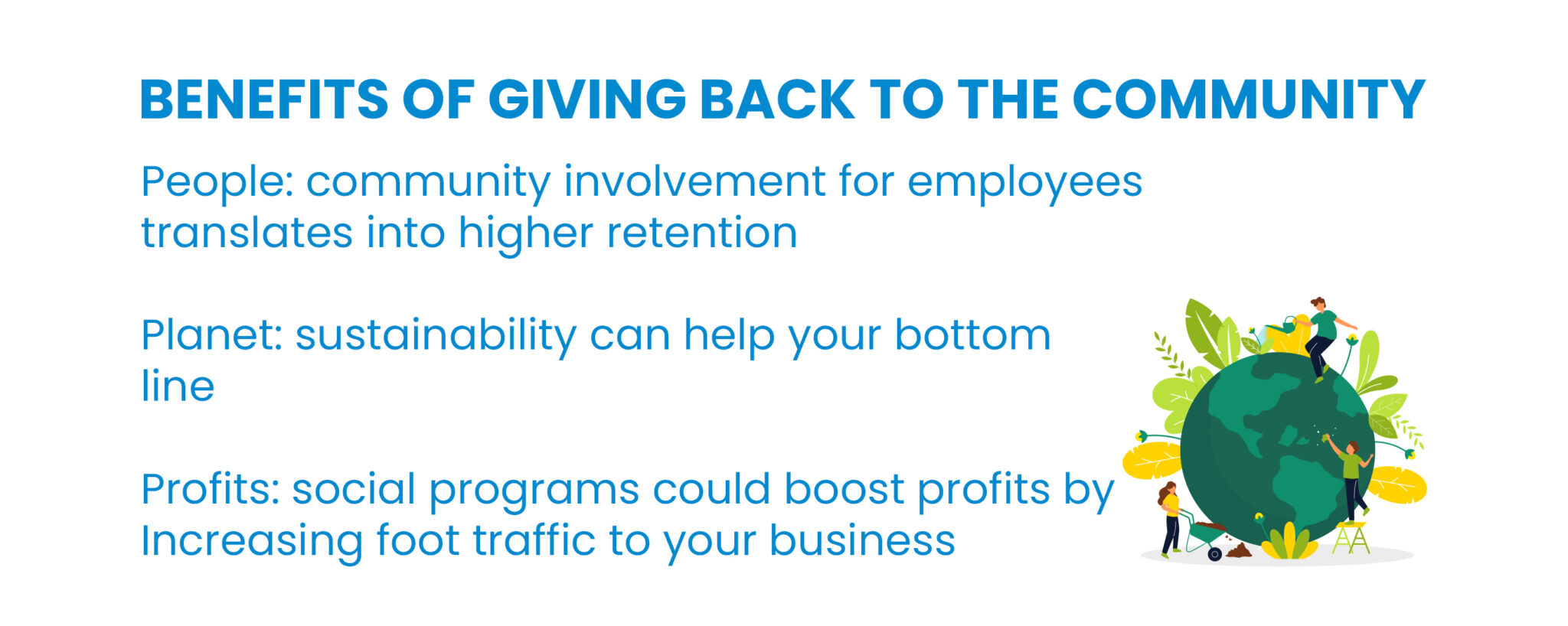In this day and age, business ethics and social responsibility play a huge role in startups. How your business conducts itself is crucial. In fact, your ethics and social responsibility within your business can make or break it. So as a startup entrepreneur, you need to know about business ethics and social responsibility. We are here to guide you through this article.
What is “social responsibility” in business?
Before anything else, let’s clear up what social responsibility is. Simply put, social responsibility in the world of business ethics focuses on a company’s social, environmental, and economic obligations. The extent to which companies feel obligated to give back to the larger society Here, “larger society refers to those who are not directly associated with the business.

Why is social responsibility so important?
Nowadays, companies are encouraged to adopt socially responsible practices. Consumers have become more vocal about it, too. They demand that more companies act accordingly. Millennials, in particular, place a high value on the practice, even utilizing it as a determining factor when choosing a job. For others, the term has left a terrible taste in their mouths because many firms have exploited it merely as a PR ploy. One must bear in mind that social responsibility is not merely a public relations gimmick but rather embedded in a company’s core beliefs and daily activities.

Without a doubt, social responsibility must be implemented with caution. Nevertheless, when done properly, corporate ethics and social responsibility may help your company and, more significantly, your community. This begins with the starting stage.
Many founders make the mistake of believing that social responsibility is solely the domain of giant organizations. While such projects are undoubtedly possible, social responsibility does not have to be prohibitively expensive.
Regardless of the size of your firm, an ethical framework and socially responsible efforts should be woven into the fabric of your organization from the start.
Why should you be socially responsible?
Here are some of the main reasons why you need to be socially responsible:
1. To hire the best talents
You already know that your employees and your team are a big part of your business. From the start, it is important to get the best talent on board. However, offering a competitive salary alone will not do it. Especially in this day and age, people want to know your company’s ethics and social responsibility status before joining. Especially millennials would consider these factors before deciding to work with you.
2. To survive in the market
When you’re first starting out, adopting ethical business practices and incorporating social responsibility are effective ways to market your brand.
On the other hand, selecting to hire ethically can be difficult to shake and can have a direct impact on your hiring and revenue funnel, and hence your company’s capacity to prosper.
A company’s public messaging and past and present staff are publicly available information nowadays. An employee can locate it with just a short Google search. Company ethics are more crucial than ever before for this reason.
3. To surpass your competitors
If you are not the most socially responsible brand out there, that means some other company is. Would you let that happen? Competition is another factor that you have to consider when it comes to business ethics and social responsibility. Customers compare and contrast brands. And businesses that don’t adopt and invest in ethics end up losing appeal.
4. Increased customer loyalty
Businesses and customers alike may use social responsibility as a springboard to improve their own communities, both near and far. Organizations that launch a CSR program that meshes with their core beliefs can expect an uptick in consumer loyalty and repeat business.

Studies reveal that 87 percent of customers are more inclined to support a firm financially if the business supports a cause they care about. In addition, if they learned that a corporation supported an issue contrary to their convictions, 76% said they would stop buying the company’s products.
How do you prioritize social responsibility?
Before you begin planning how your firm will incorporate social responsibility into its fundamental beliefs, you must first learn how to prioritize it. Even entrepreneurs with the necessary resources may find it difficult to prioritize social responsibility.
Addressing these questions can help you determine which social concerns to invest in and whether you should pursue CSR efforts in the first place.
-
- How does your company affect its important stakeholders?
-
- What are your primary business competencies?
-
- Are there any unmet needs in the neighborhood where your company operates?
-
- How can your CSR initiatives set you apart from the competition?
What resources do you have at your disposal to implement these initiatives?
- How can your CSR initiatives set you apart from the competition?
Answering the above questions is essential when incorporating social responsibility. Only then should you consider how your company can give back.
How do you give back as a startup?
1. See where you can make internal changes
You need to find ways to implement flexible hours, catered lunches, or other non-traditional perks for your employees.
2. Find ways to better your community.
See if you can take steps—big or small—to help your community on a small scale. You can talk to the community directly and see what you can do to make a change for the better.

3. Ask for help
It’s not always easy for a start-up business to do a lot with a tight budget. In such situations, you can reach out to a local venue and request that they donate their space, or a local restaurant can contribute food for a charitable event you host.
4. Make sure your supply chain is sustainable
Ethical products are not limited to just your services. Make sure to incorporate ethical choices in everything from sourcing materials to the manufacturing process.
5. Get the board of directors on your side
Communicate with your board of directors about your social responsibility and ethical values. Explain clearly how giving back benefits the company in the long term.
6. Motivate your employees to be a part of it
Give your employees a voice by involving them in the decision-making process, and choose a cause that everyone can get behind.
What not to do when incorporating social responsibility
Successful corporate social responsibility may be a differentiating factor for your firm and an indicator of its integrity as a company. Unfortunately, many firms have abused social responsibilities and ethical practices for their own gain, and while there are still great effects, they are not necessarily genuine.
We’ll say that once again, if you are not genuine about social projects, don’t participate in them. Consider incorporating social responsibility activities into your basic values as a means of avoiding this ethical conundrum. Core principles will always be the north star that leads your startup.
Let’s now discuss a few “don’ts” when developing a socially responsible business plan.
Don’t misuse your socially responsible values.
Sure, most companies don’t set out to be irresponsible. However, they end up doing so eventually. Don’t be that company that establishes social responsibility to gain moral credit and divert attention away from irresponsible behavior later on.
1. Don’t use company initiatives to hide or avoid controversy
It is never easy when a company ends up in controversy. It can be difficult to recover from it and come back. You have to be strategic and smart here. However, we’ll tell you one thing you should not do if you end up in hot water. That is, never try to deflect attention to your socially responsible programs to downplay the bad press. If you do, you will end up making the situation even worse if you try to brush things under the rug by bringing up your socially responsible work.
Charitable endeavors are irrelevant to your primary business focus or ethical standards.
Instead of donating money to an unrelated group, choose a nonprofit that your firm believes in or a community project that resonates with your basic beliefs.
2. Don’t rely on socially responsible behavior solely for marketing
When you’re just starting, social responsibility can help you establish your brand. However, you should remember not to take up your socially responsible projects and activities solely for marketing or good press. People will pick it up. And the outcome will not be nice for your company.
Your efforts will backfire on your company. Instead, you can incorporate long-term practices that you know you can continue. That would do much better for your brand than short-term socially responsible behavior solely done for marketing purposes.
3. Don’t be sketchy about social responsibility practices
It is never smart to make social responsibility decisions behind closed doors. It then excludes most of your team from the decision-making process. In turn, they would end up with people wondering whether there was more to your intentions. They wouldn’t fully buy the ideas you present. Instead, they would be questioning if there are any strings attached to these projects and if donations are genuinely going where you say they are.
You can easily avoid these situations by simply involving your employees in the projects. That way, they feel like they have a voice, and you can be open and honest about your efforts with the public.
Wrapping up
The morals of a business and its approach to social responsibility are more essential now than they were 20 or 30 years ago. So as a startup, you need to know about and incorporate social responsibility and ethical practices. Engaging in socially responsible and ethical activities can help you survive in the market, appeal to customers, get talented recruits onboard, and improve the community in general.
It is important that your practices be long-term and not just for short-term advantage. Workers not only place greater emphasis on their employers’ values, but if you want your startup to remain competitive and capable of attracting top talent, you have to commit early to defining and promoting your company’s ethical behavior.

